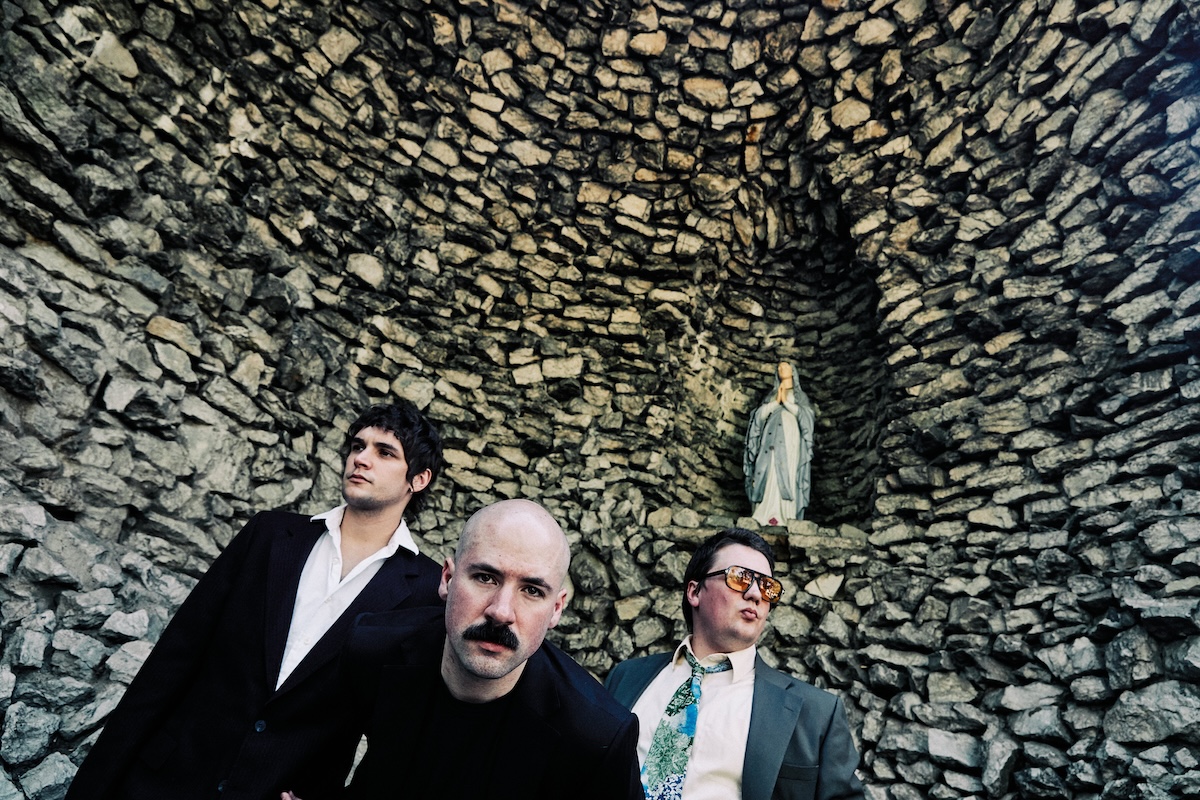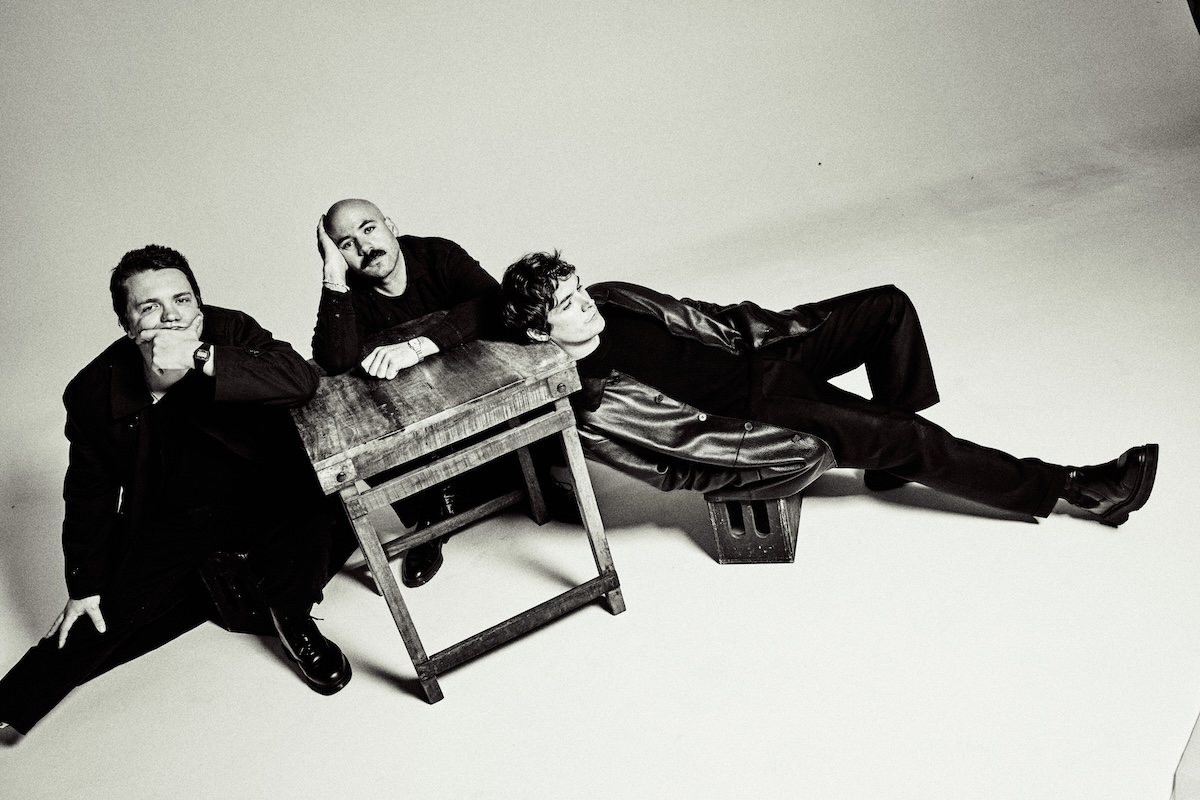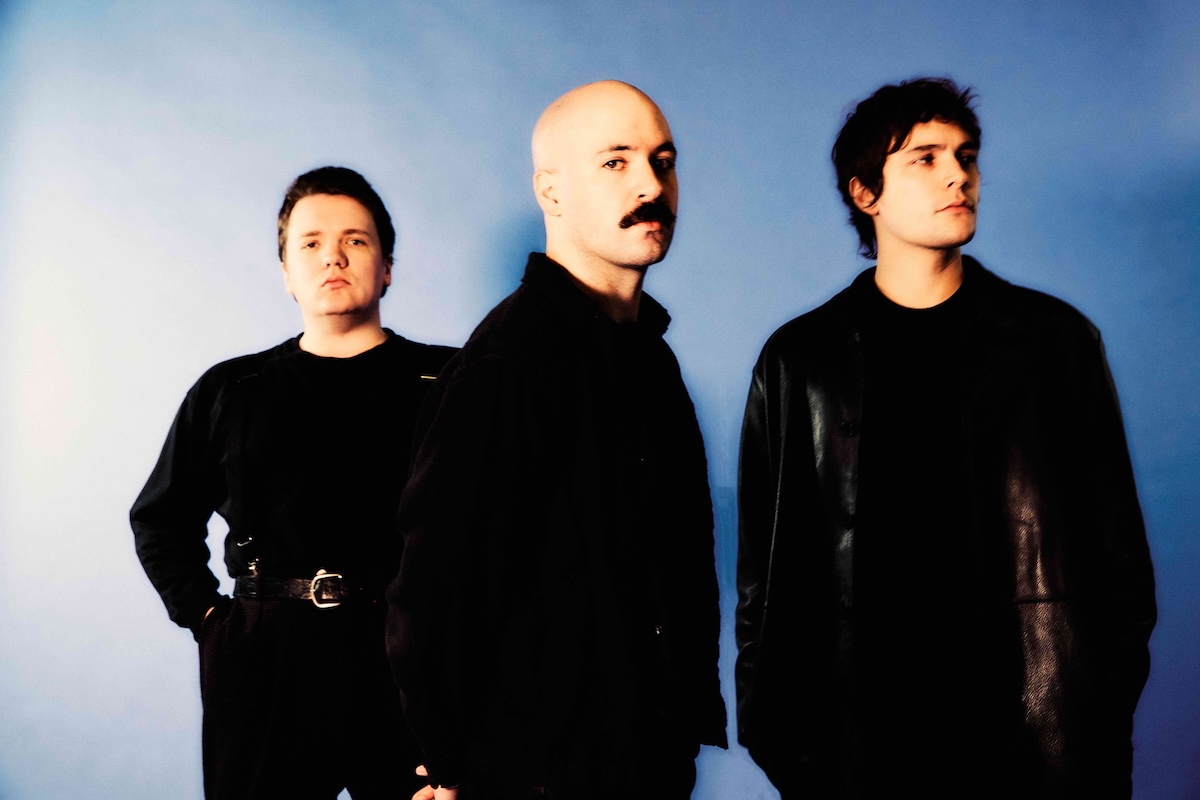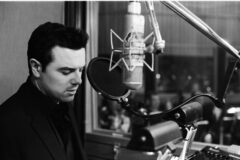It takes guts to call yourself the world’s best American band. To be fair, White Reaper never technically did that. They just released an album in 2017 called The World’s Best American Band, stocked it with top-to-bottom arena-slash-convertible rock reminiscent of the opening of an ’80s movie shot in a high school parking lot establishing the various social castes, with an opening track called “The World’s Best American Band” that started with the sound of a roaring crowd, and then positioned themselves as maybe possibly the world’s best American band.
To call that shot and then actually knock the ball out of the park like that? That takes more than guts. That takes faith and, perhaps more than faith and guts, it takes the talent.
The major labels saw it, obviously. And it didn’t take long before White Reaper were outpacing the buzzy Midwest indie rock scene they grew out of, full of garagey, kind of surfy, kind of psyche bands who tucked their T-shirts into their jeans and sounded like the Cars on meth. They were anointed as the chosen ones, given a place on Elektra Records for their follow-up album to The World’s Best American Band, 2019’s You Deserve Love, and they no longer were an indie band cosplaying as an arena rock band.
They were a major label band and they were playing arenas.
That meteoric rise, as they say, combined with a global pandemic for good measure, can mess with you a little bit mentally.
We’re not going to talk about the pandemic at length, though. White Reaper guitarist/vocalist Tony Esposito (not the goalie) has done enough of that, he says.
But after You Deserve Love, Esposito said the band had been sitting around, sort of unsure of how to start things back up creatively. The pandemic lockdown hadn’t been conducive to creative output, he felt. They still managed to put out a very good album, 2023’s Asking for a Ride, which showcased some of their thrash metal influences and also landed them a song placement in a Taco Bell commercial—the truest indicator in today’s world that your band has made it.


But as their star continued rising, the major label didn’t quite know what to do with them or how to fulfill the stardom they were clearly destined for. The label believed radio was the key to breakthrough success, and the band hit an identity crisis when that strategy didn’t pan out.
“I think that was sort of hard for all of us to wrap our heads around,” Esposito says. “Because we were like, ‘Wait, we’re punk guys—punk, whatever that means—and we’ve entered this world where maybe we’re just a radio band. I don’t know. Who are we to these people? We’re not sure.’”
Esposito says it might have been a little bit of imposter syndrome, now finding himself on the same poster as bands like Pearl Jam, but he also specifically calls that 2020 European tour “fucking awesome.” But like so many stories of the band of childhood friends who grab hold of a rocketship, it got to the point where disagreements and different ideas for their own individual futures clashed, and the band’s rhythm section, made up of twins Sam and Nick Wilkerson, split with the band.
Esposito paints it as amicable and still says he loves them, but having two core members leave the band won’t help you get through an identity crisis.
But rather than call it quit or allow the wheels to fall off the very cool metaphorical convertible the band had become, Esposito and the band went back to try to recapture not only some of the sound and sensibility of when they first got things going, but also the approach and the fun of it all. The thrill.
“We started this band so young,” he says. “We were kids. And we were like, ‘Oh, fuck it, little two-minute song. I don’t really care if it’s good or not. It’s fun to make.’ Before it was my job, I’m at my bus boy job thinking about the song I’m going to record when I get home. And there was no pressure. And now, your job is to make the song. That, to me, is the reckoning sort of thing. There was this innocence lost. And that sounds really dramatic and stupid.”


For Only Slightly Empty, the band had conscious conversations about their old work, like their debut White Reaper Does It Again or even the EPs that preceded that. They dissected those songs thinking about what worked, what holds up, what they can leave in the past, and what they can recreate from that process to make the whole thing sound and feel fun and pure again.
“If we could try to aim for that with this evolved ability as players that we have now, what would that kind of look like?” Esposito says. “That was really the target.”
The “let’s go back” idea can often have mixed results. Many a band that have strayed from its roots to the arenas and radio have promised that they were “going back” to something, like a shack, for example.
“Obviously it can be a slippery slope, dangerous game, whatever you want to call it, to be like, ‘Let’s go back to the beginning,’” Esposito says. “It’s impossible for so many different reasons. But that really is what it was. We were so much younger and had no idea where this band would take us—musically, personally, what have you. It is kind of a funny thing to say, ‘Let’s go back to that,’ right? But I think just being honest with ourselves about what that really means and what’s possible within that arena, I think we did about as good a job as we could’ve.”
If the goal was to sound like White Reaper at its base components, but with the ability and influence that it’s gathered from endless touring and sharing stages with the best in the biz, the band hit the mark. Only Slightly Empty, out September 26 on their new home of Blue Grape Music, is massive without ever overstretching itself. Esposito and guitarist Hunter Thompson trade riffs as well as they always have, keyboard player Ryan Hater layers expertly adding texture and melody and personality, and the songs just rip.


There’s no grand thesis statement or introspective meditation to start the album. They bust down the door with the sub-two-minute “Coma,” which honestly kind of sounds like an early ’90s Chili Peppers song (complimentary), and feed it right into the pulsing and driving “Blink,” which only takes enough of a breath to hang the guitars while Esposito sings as catchy a chorus as one would hope from White Reaper, punctuating it with a strutty little guitar riff to show that they’re still having as much fun and feel as confident as ever—perhaps more so.
If you’re anything like me—a sucker for harmonized guitar riffs—this one might be the standout. And it’s not to say that Asking for a Ride didn’t deliver. But even Esposito feels like this new record really captured them at their best without any overthinking.
“This time, I think kind of sitting in the drawn out, kind of dregs of that creative experience [made us] like, ‘No, let’s just move faster. Whatever idea the first one is, let’s just chase that unless we hit a wall, and then we’ll pivot,’” he says. “But most of the time, your first idea is probably going to be your best one.”
This isn’t just a simple punt of an album like Esposito might make it sound. The band is clearly still driving themselves forward with tracks like the shoegazey Hum-worshipper “Blue 42,” and the bona fide power ballad closer “Touch.” If songs like “The World’s Best American Band” and “Judy French” were the score for the movie’s opening scene, “Touch” is playing as it fades out and the credits roll.
Calling yourself the world’s best American band and tying an American flag bandanna around your jeans, and then actually pulling the whole thing off, was a feat. Declaring that you’re going back to basics but taking your influences with you and actually delivering is damn near miraculous. Those sorts of swings don’t tend to happen more than once. I don’t think I’m allowed or qualified to declare any band the “best,” but Only Slightly Empty might solidify the fact that the majors were right about one thing: White Reaper might just be the chosen ones.




